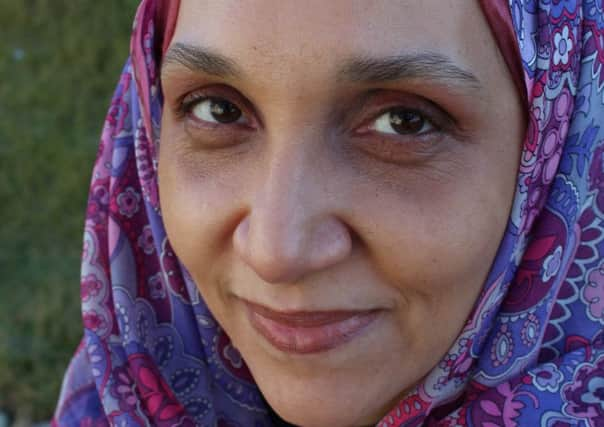Book review: The Kindness Of Enemies by Leila Aboulela


The Kindness Of Enemies by Leila Aboulela
Weidenfeld & Nicolson, 392pp, £14.99
The Kindness of Enemies is a hybrid novel, one part contemporary, the other historical. There are a couple of links, and we may assume that the historical sections are written by the narrator of the present-day ones. She is Natasha, a Muslim academic, half Sudanese, half Russian, living in Scotland and teaching in a Scottish university where she gives a lecture to the Muslim Society on “Jihad as Resistance – Russian Imperial Expansion and Insurrection in the Caucasus”. “When they realised that my focus was Imam Shamil’s leadership from 1830 to 1859 rather than the present, they seemed a little restless.” Afterwards, however, her favourite student Oz or Ossie (short for Osama, but that name isn’t used) invites her to meet his mother; her family come from the Caucasus, and she is indeed a descendant of Shamil.
Imam Shamil was a celebrity in his own time and is of interest today. The Russian war in the Caucasus was long, bloody and difficult, the resistance of the Chechens, Dagestans and other tribal peoples, most of them Muslim, was determined and heroic. Shamil became popular in Britain, especially during the Crimean War, fought essentially to prevent further Russian expansion in the Near East. Double standards prevailed, as they always do. Shamil, opposing Russian imperialism, was a noble hero; those who resisted British imperialism were either misguided or villainous.
Advertisement
Hide AdThe main episode in the Shamil narrative tells of the kidnapping of a Georgian Princess, Anna, by one of the more ferocious Muslim tribes. Shamil treated her well, with the respect due to her rank, though one of his wives didn’t. Christian Georgia had already been annexed by Russia, and Shamil’s intention was to exchange Anna for his own eldest son, Jamaleldin, who as a child had been surrendered to the Russians and brought up as a Russian nobleman. All this is admirably done, the picture of life in Shamil’s camp being very vivid, some of it drawn from the account written by the French governess employed by Princess Anna.
Shamil himself is portrayed convincingly, as a noble fighter for freedom and devout Muslim, whose understanding of Jihad was very different from that of today’s Islamist fanatics. One of the author’s aims, in which she succeeds, is surely to give us a fuller and better understanding of Islam and of the different interpretations of the religion in different parts of the Muslim world. One might also remark that when Shamil was defeated and surrendered, he was treated well by the Tsar, with a dignity suited to his rank and history. In some respects the 19th century was more civilised than our own time.
The contemporary chapters of the novel deal with Natasha’s troubles at the university, Oz’s arrest on suspicion of having been radicalised, and Natasha’s return to her childhood home of Khartoum after her father’s death. These sections are inevitably less exciting, less dramatic than the Shamil narrative, and some will find them ill-yoked to it. Some readers may indeed wonder if Leila Aboulela might not have been better advised to publish her book as two distinct novellas, the narrative connection between the two stories being so slight. Others may wish that we had more of the boy Oz, who rather drops out of the story, though not before he has told Natasha how popular the film Braveheart was among the Chechens who fought against Russia after the collapse of the Soviet Union.
Yet Aboulela is surely right to have joined the two narratives, however awkwardly. Natasha admits that she is not a “good” Muslim, being one who has been detached from her faith. Yet she is inescapably a Muslim, as is Oz’s mother, apparently a westernised and well-integrated actress, who nevertheless practises the Sufist version of Islam devoutly. One of Aboulela’s aims – apart from telling a fascinating story with the verve and assurance of a natural novelist – is surely to present a sympathetic picture of Islam to a western readership more accustomed to being given what, for devout Muslims, is a distorted and reprehensible version of their faith. She doesn’t quote Kipling, who wrote “where there is Islam, there is an intelligible civilisation”. Yet she might have done so, for this is one of the messages at the heart of her novel.
At the same time, she explores what it means to be a Muslim and a woman in the world today. Natasha makes compromises to survive. Yet she manages to accommodate herself to both Scotland and Khartoum. She engages with the difficult question of the position of women in the Islamic world today – a question brilliantly explored in Mona Eltahawy’s Headscarves and Hymens: Why the Middle East Needs a Sexual Revolution.
Ultimately I think, the theme of her novel is reconciliation. Princess Anna comes to admire and sympathise with Shamil. Shamil is astonished to find himself treated generously by the Tsar (though he understands the political motives behind his reception). Natasha realises that to be fully herself she must accept the complexity of her upbringing and situation, the complexity, indeed, of life in a world of shifting identities.
Advertisement
Hide AdIn short, Aboulela has written a novel which invites you to think about the times we live in, and to feel for the burden its discordant strains impose. This novel about different cultures is also an argument against an over-simplified view of things, of faiths and people.
• Leila Aboulela is at the Edinburgh Book Festival on 21 August